Vowel Recognition Normal Worksheets for 8-Year-Olds
5 filtered results
-
From - To
Discover our engaging Vowel Recognition Normal Worksheets designed specifically for 8-year-olds! These printable resources support young learners in mastering vowel sounds and improving their reading skills. Each worksheet features a variety of fun activities, including filling in the blanks, matching exercises, and word puzzles to enhance vowel awareness. By providing colorful visuals and interactive tasks, our worksheets make learning enjoyable and effective. Perfect for classroom use or at-home practice, these resources help build a strong foundation in literacy. Equip your child with the skills they need to read confidently and unlock their love for learning! Explore our collection today!
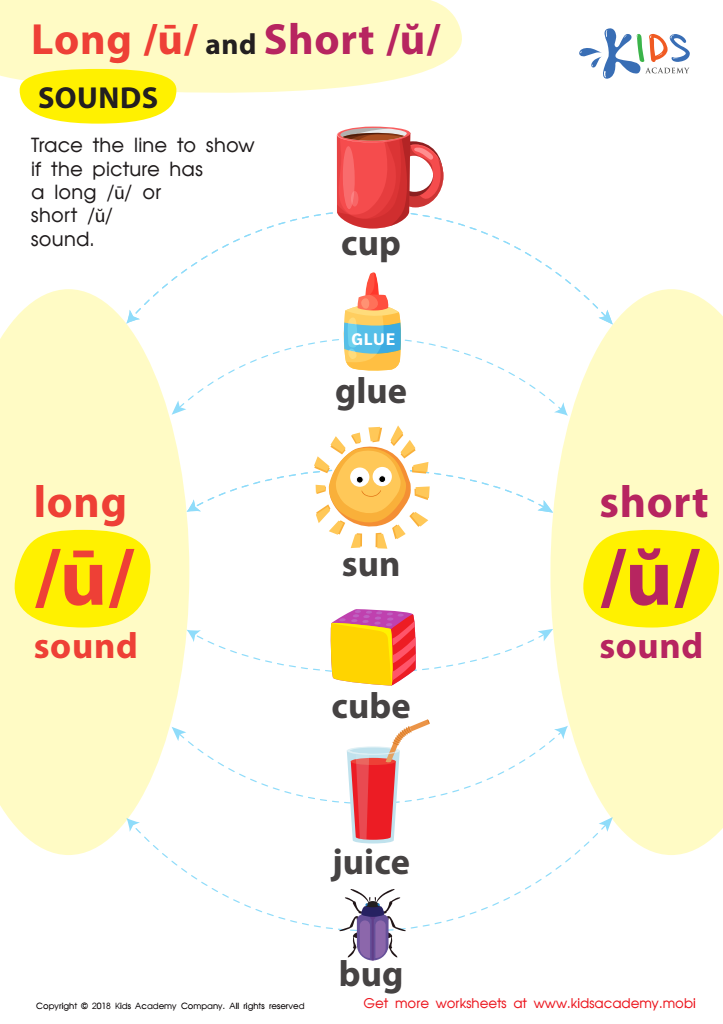

Reading: Long U and Short U Sounds Worksheet
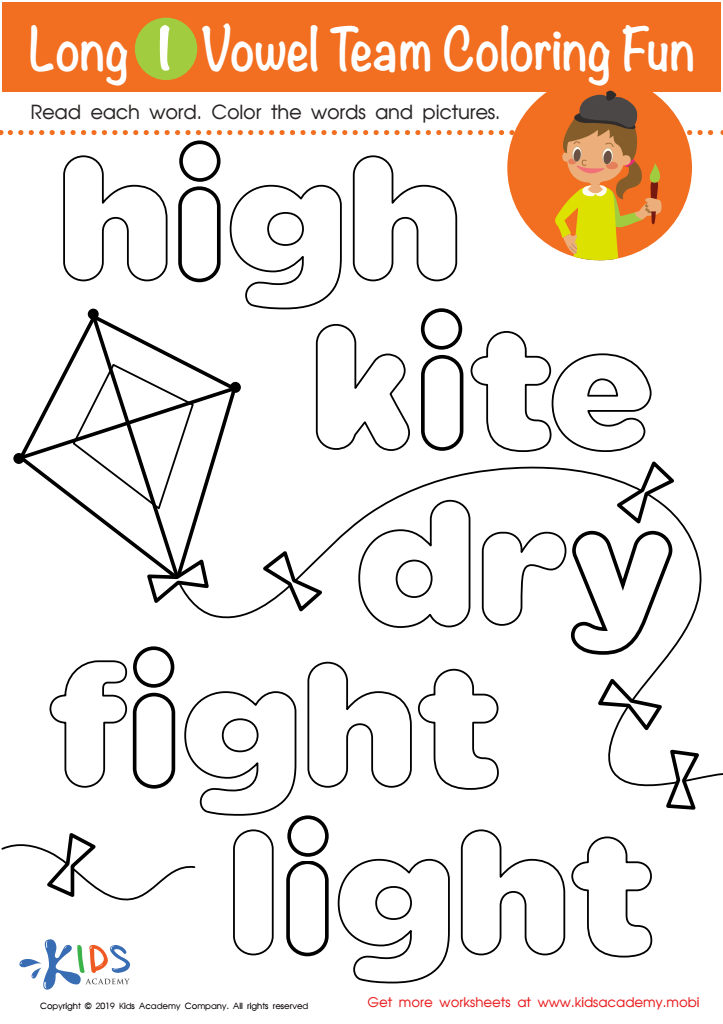

Long I Vowel Team Coloring Worksheet
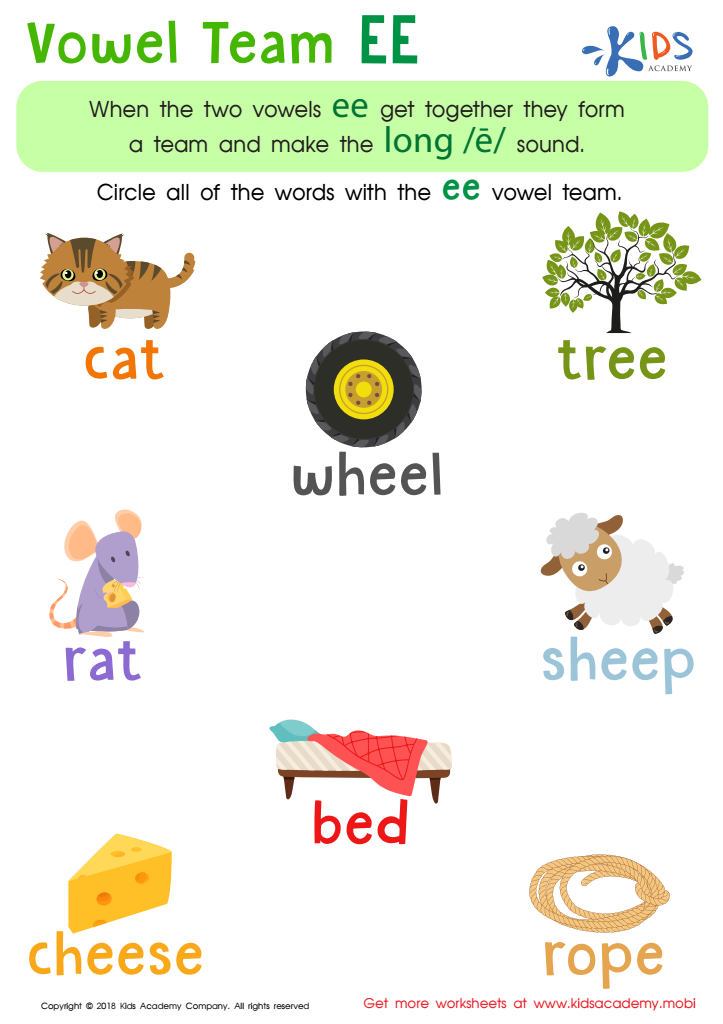

Reading: Vowel Team EE Worksheet
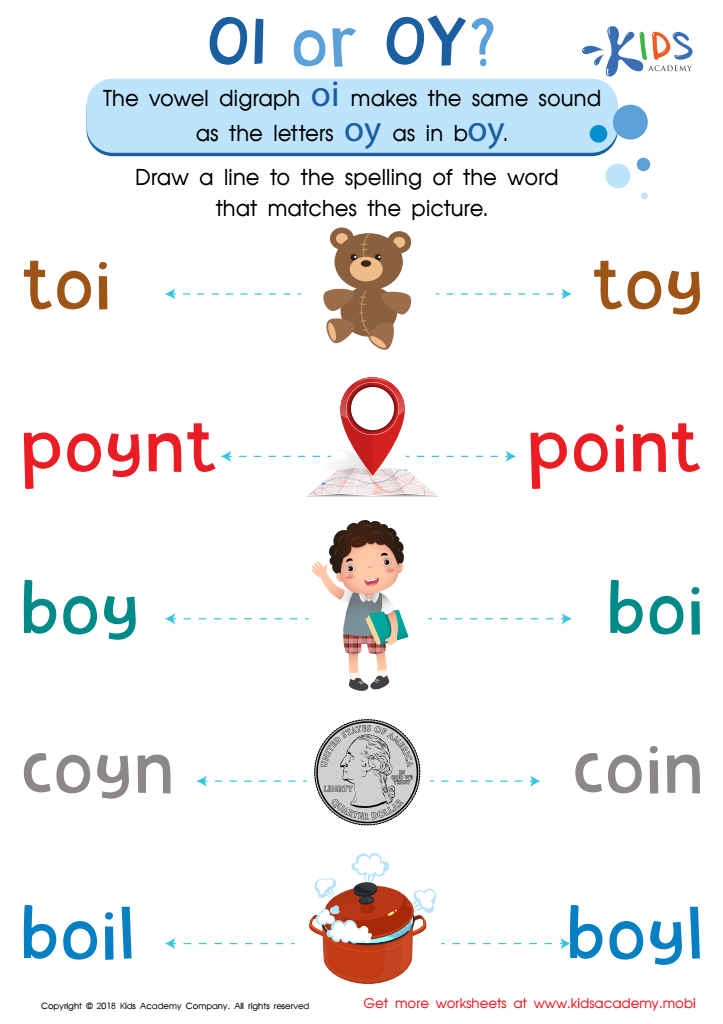

Reading: OI and OY Worksheet
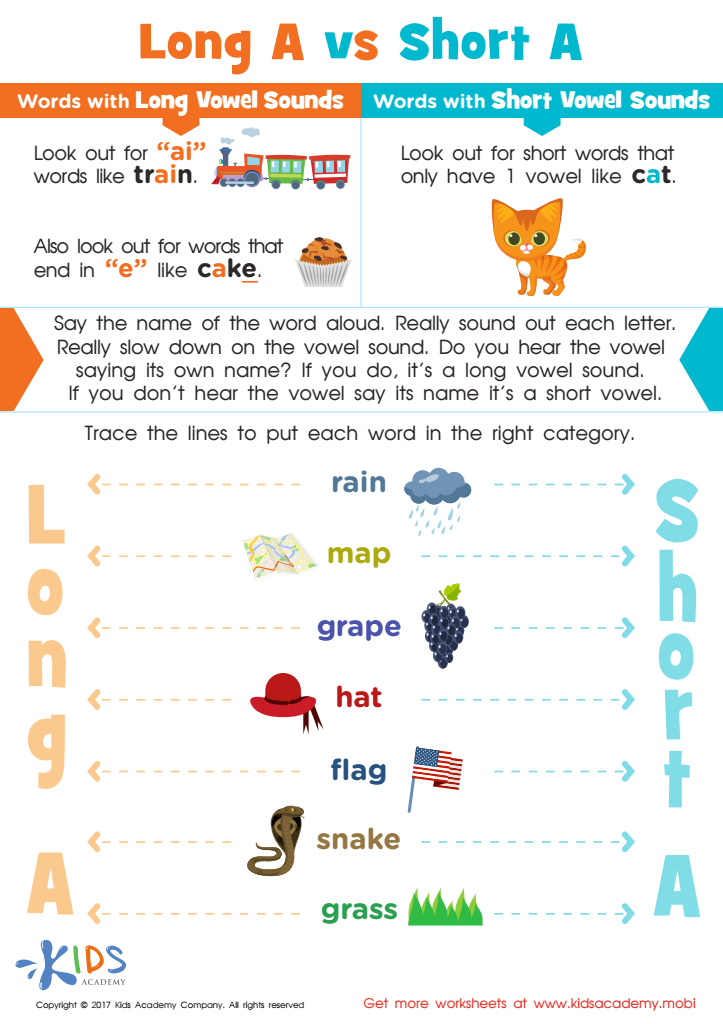

Long and Short Vowel A Spelling Worksheet
Vowel recognition is a crucial skill for 8-year-olds as it lays the foundation for reading fluency and comprehension. At this age, children are developing their phonetic awareness, which is essential for decoding words and understanding their meanings. Vowel sounds can be tricky due to their various representations in different words (like the difference between “cat” and “cake”), making mastery of them vital.
By ensuring that children recognize and correctly use vowels, both parents and teachers can foster confidence in reading. This skill encourages a deeper connection to language, enabling children to read aloud and engage with texts more enthusiastically. When children struggle with vowel recognition, they may experience difficulties in spelling and writing, leading to frustration and potential disinterest in literacy.
Moreover, strong vowel recognition skills contribute to improved vocabulary, aiding in overall linguistic development. By emphasizing this aspect of learning, caregivers can help children build crucial literacy skills that impact their academic performance in all subjects as they progress in school. In conclusion, advocating for vowel recognition not only enhances reading abilities but also instills a love for learning—a benefit that extends beyond the classroom.
 Assign to My Students
Assign to My Students
















